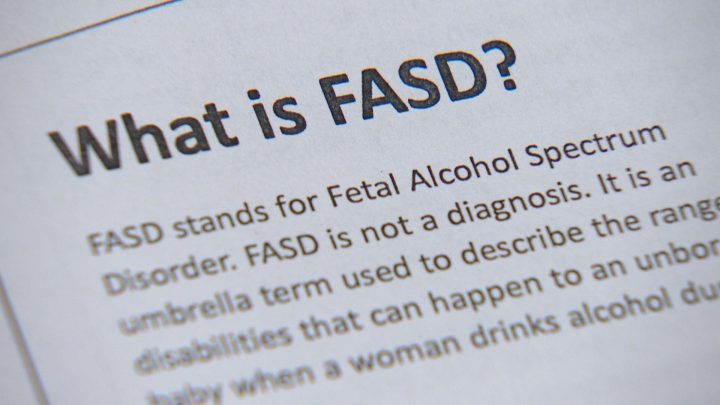The mothers of children who are born with Fetal Alcohol Spectrum Disorder are much more likely to have a high rate of inadequate or no prenatal care, according to a new study from the University of Manitoba.

The study shows more than 40 per cent of Manitoba women over a 28-year period didn’t receive recommended prenatal care.
“Our findings show that these women are not receiving an important health-care service that is critical to monitoring their health and that of their baby, and could help to reduce their alcohol consumption during pregnancy,” said the study’s lead author, Deepa Singal.
The study pored over the heath data of 700 births from 1984 to 2012. Authors said it’s one of the first FASD-specific studies focusing on prenatal care in the world.
FASD is a disorder that affects brain development and can happen when a fetus is exposed to alcohol while in the womb. Some of the symptoms include life-long physical, mental, behavioural and learning disabilities.

Get weekly health news
Study authors said about 10 per cent of woman worldwide report drinking alcohol while pregnant.
“Our research suggests that screening and intervention programs in prenatal care settings may be missing an extremely high-risk population for alcohol use during pregnancy,” Singal said.
“If pregnant women who have issues with alcohol use or dependence don’t venture into a doctor’s office, or do so rarely, they are not being reached by programs or supports offered there.”
The study also found mothers of children with FASD deal with more poverty, single parenthood and mental health disorders, all barriers to getting adequate prenatal care.
Those who do drink during pregnancy may also be afraid to talk to a doctor for fear of judgement or losing their kids to child welfare services, Singal said.
RELATED: Mother keeps formula drive going for Winnipeg Harvest





Comments